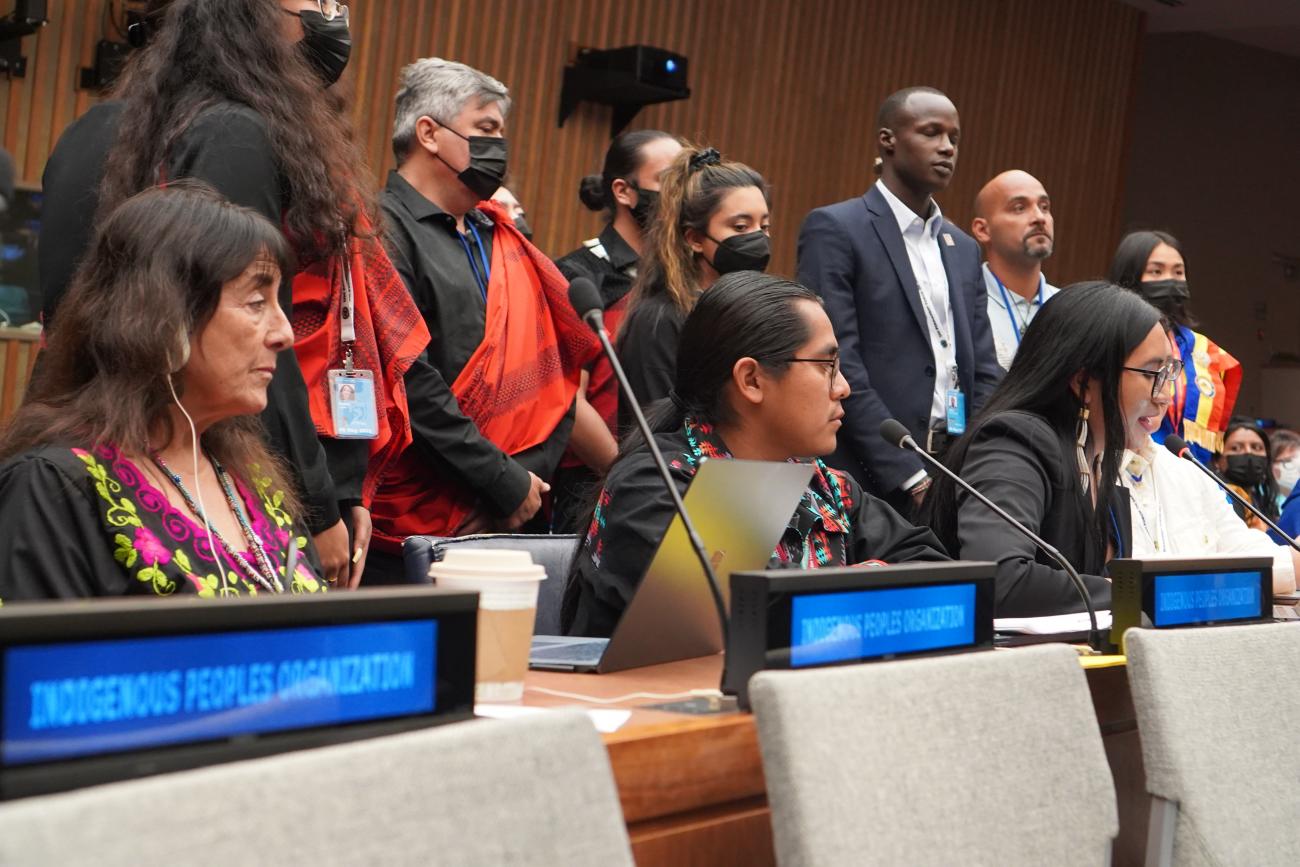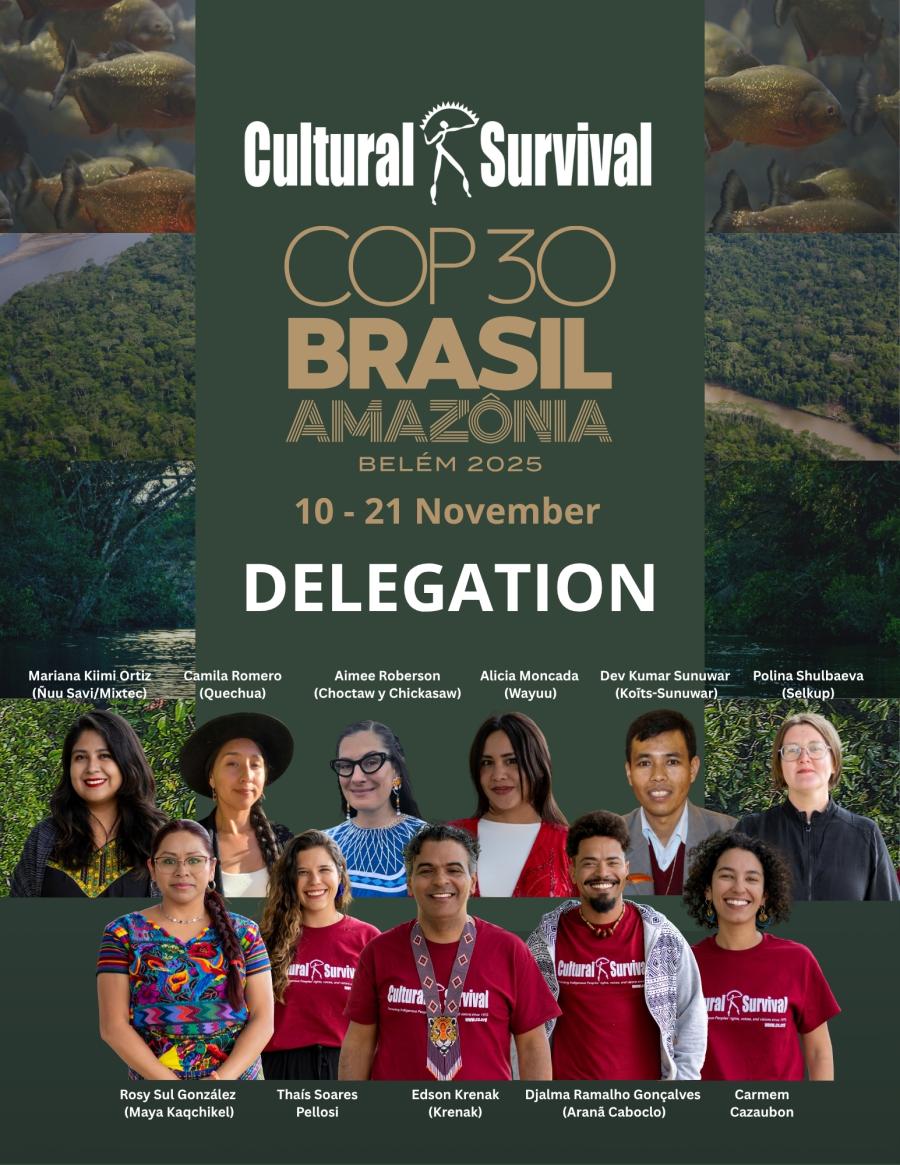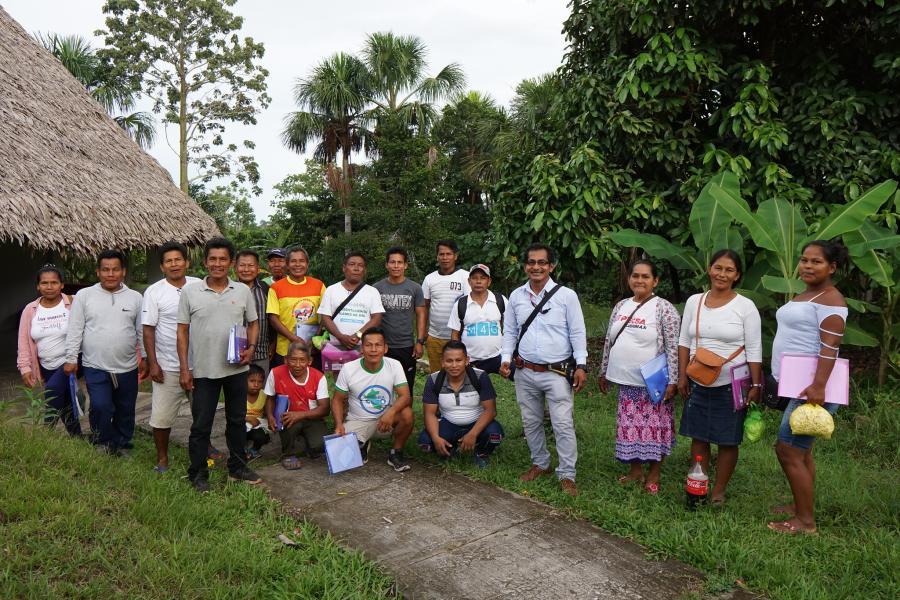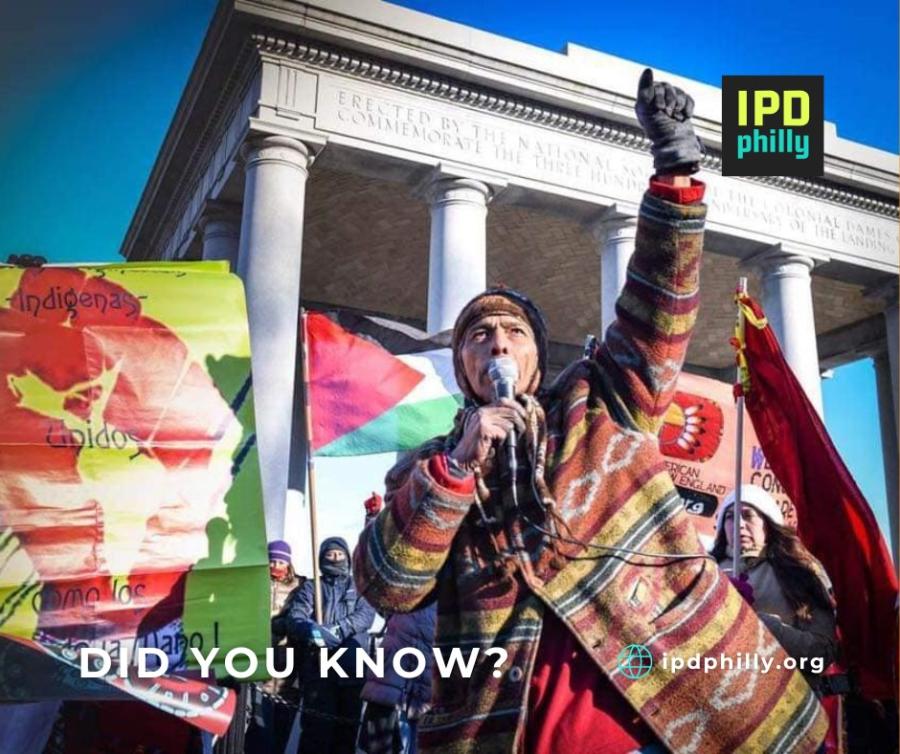
Issues
- Whereas the International Decade of Indigenous Languages recognizes that Indigenous languages are on the brink of extinction, action must be taken for the cultural survival of Indigenous communities.
- Whereas failure to respect the collective rights of Indigenous Peoples to their lands undermines their ability to protect their environment from damage caused by large-scale projects, adversely affecting Indigenous Peoples and our lands, water, air, and natural resources.
- Whereas the Doctrine of Discovery has been used to justify environmental devastation and theft of Indigenous land binding together extraction and exploitation.
- Whereas the key to sustainable development for Indigenous communities is linked to respect of Indigenous Peoples’ rights, specifically the rights to self-determination, to lands, territories, and resources, and to free, prior, and informed consent as prescribed by UNDRIP and ILO 169. However, progress has been slow or threatened.
Recommendations
Therefore, the representatives of the Global Indigenous Peoples Caucus recommends that:
- A Special Rapporteur and a co-chair to oversee the decade on Indigenous Languages to address the linguicide happening globally. We further call upon UNESCO to develop a consultation process directly with Indigenous Peoples in regards to the decade on Indigenous Languages. (E/C.19/2022/5, E/C.19/2022/10)
- UNESCO advances the work to repatriate/rematriate all cultural patrimony, seeds, and language recordings. Furthermore, we call upon UNESCO to work directly with Indigenous Peoples on the preservation and revitalization of Indigenous languages as part of the sustainable development efforts. We further call upon the Permanent Forum and UN bodies to expand language translations to include Indigenous languages in order to provide full and effective participation by Indigenous Peoples. Resources are needed to support the preservation, protection, and survival of Indigenous languages. (UNDRIP Articles 11-14).
- The UNPFII call upon those Member States that have not yet ratified or acceded to the Indigenous and Tribal Peoples Convention, 1989 (ILO 169) to consider doing so. (Session 18 p. 133)
- UNDRIP be raised to the level of a convention to ensure the inherent rights of Indigenous Peoples including the right to Free, Prior, and Informed Consent (A/HRC/EMRIP/2019/3/REV.1; A/HRC/39/62).
- Recalling the Permanent Forum’s recommendation to develop a guide for Member States to fulfill their international obligation to consult with and obtain the free, prior, and informed consent of Indigenous peoples in accordance with the standards established in the UNDRIP and welcome The UNPFII’s invitation to the EMRIP and the Special Rapporteur to collaborate on this initiative (UNPFII session 15, p. 030).
- Recalling p. 41of the 12th UNPFII’s report affirming that Member States establish a monitoring mechanism to address violence against Indigenous Peoples including assassinations, assassination attempts, rapes, and other forms of intimidation and persecution. Welcoming the UNPFII’s recommendation that this mechanism addresses the issue of missing and murdered Indigenous Women ensuring full protection. Calling on EMRIP to address the issues of Indigenous Peoples who are disappeared, murdered, and persecuted for speaking out against Member States.
- The United Nations and Member State repudiate and reverse the Doctrine of Discovery on this twelfth anniversary of the preliminary study (E/C.19/2010/13).
- We reiterate the call for a study to be undertaken of freshwater fishing and hunting rights and ask that it be presented to the UNPFII at its twenty-second session. (Session 16, p. 105)
- We call for a thematic dialogue about the harmful realities of oil, extractive industries, and so-called green energy technologies and corporate propaganda.
- Indigenous peoples are particularly vulnerable to forced labor and human and sex trafficking, we welcome the recommendation by the Permanent Forum that: all States install gender-sensitive action plans and independent self-reporting mechanisms that give particular attention to indigenous peoples, with the aim of protecting victims, prosecuting perpetrators and preventing human trafficking and related serious exploitation in all its forms, in accordance with the UNTOC, the Protocol to Prevent, Suppress and Punish Trafficking in Persons, and the Protocol against the Smuggling of Migrants by Land, Sea and Air, and the Convention on the Rights of the Child. (Session 11, p. 027).
- We call upon the UNPFII to follow up on the Sixteenth Session’s recommendation “that national and transnational corporations adhere to the United Nations Guiding Principles on Business and Human Rights in order to ensure the protection of the rights of Indigenous human rights defenders” (Session 16 p. 077).
Photo: Global Indigenous Youth Caucus making an intervention at the 21st Session of the UN Permanent Forum on Indigenous Issues.



